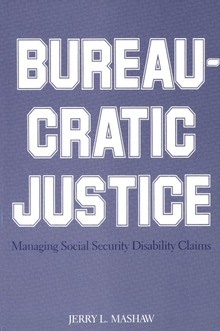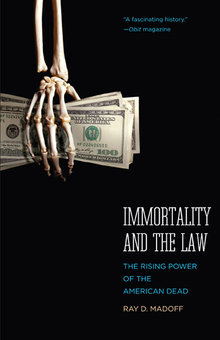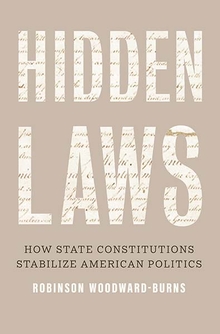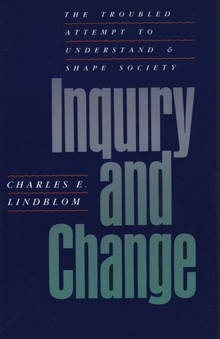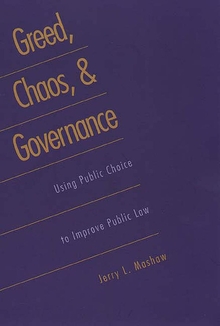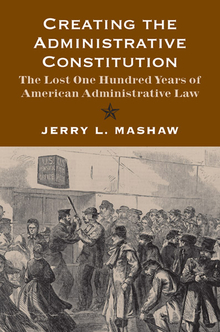Bureaucratic Justice
WARNING
You are viewing an older version of the Yalebooks website. Please visit out new website with more updated information and a better user experience: https://www.yalebooks.com
Managing Social Security Disability Claims
Jerry L. Mashaw
"A major contribution to the ongoing debate about administrative law and mass justice."—Lance Liebman and Richard B. Stewart, Harvard Law Review
"Profound implications for the future of democratic government. . . . Practical, analytical policymaking for a complex decision system of great significance to many Americans."—Paul R. Verkuil, Yale Law Journal
"An exceptionally valuable book for anyone who is concerned about the role of law in the administrative state. Mashaw manages to range broadly without becoming superficial, and to present a coherent and challenging theory in lively, readable prose. Bureaucratic Justice seems certain to become a standard reference work for administrative lawyers, and for anyone else who seeks the elusive goal of developing more humane and more effective public bureaucracies."—Barry Boyer, Michigan Law Review
"Strongly recommended for use in graduate seminars in public policy or law. . . . If we are to develop a positive model of bureaucratic competence, we must answer the insightful questions rased in this cogent book."—David L. Martin, American Political Science Review
"Mashaw provides an excellent analysis of middle range processes of decision making."—Gerald Turkel, Qualitative Sociology
"Stimulating and provocative and . . . makes a contribution to the ongoing dialogue about due process in public administration.... It is tightly organized, cogently argued, and full of pithy historical illustrations. . . . One of the best such works in many years." —Annals of the American Academy of Political and Social Science
"A thoughtful, challenging, and very useful book."—Choice
"Inspires a new direction in administrative law scholarship."—A.I. Ogus, Oxford Journal of Legal Studies
"Mashaw provides an excellent analysis of middle range processes of decision making."—Gerald Turkel, Qualitative Sociology
"Stimulating and provocative and . . . makes a contribution to the ongoing dialogue about due process in public administration.... It is tightly organized, cogently argued, and full of pithy historical illustrations. . . . One of the best such works in many years." —Annals of the American Academy of Political and Social Science
"A thoughtful, challenging, and very useful book."—Choice
"Inspires a new direction in administrative law scholarship."—A.I. Ogus, Oxford Journal of Legal Studies
Publication Date: March 11, 1985

